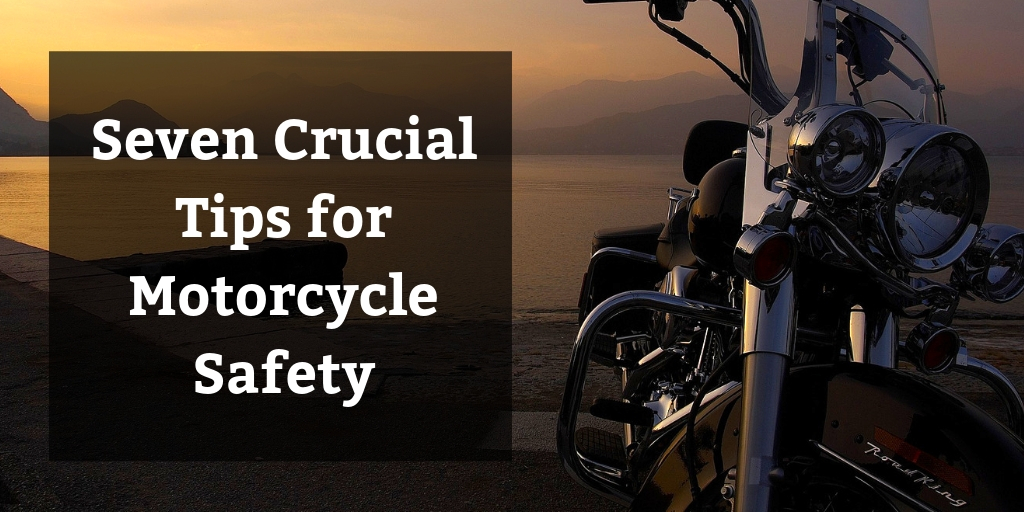
As spring turns into summer, danger also lurks. Florida has frequently been recognized as the most dangerous state for motorcycle riders. The summer months bring more riders to the roads than any other time of year, and that also brings accidents. That’s why we have compiled a list of seven important tips for motorcycle safety.
There are many factors involved in motorcycle accidents that make them such tragic occurrences. Unlike cars, motorcyclists are not separated from the road by a sturdy metal frame designed to take high-impact hits. There is no windshield to keep off the rain that can reduce visibility and diminish traction. In the state of Florida, motorcyclists above the age of 21 are also not required to wear a helmet.
All these factors and more make motorcycle accidents much more likely to cause severe injuries or death. Therefore, please take the following tips very seriously!
Tips for Motorcyclists
1. Wear the right gear: With so little between a rider and the road, wearing a helmet and protective gear should be the top priority. The right gear prevents fatal injuries in a motorcycle accident. Although adult motorcycle riders in Florida are not required to wear helmets, is it worth putting your life on the line by not wearing one?
2. Be noticed: The fact is, it can be easy to miss a motorcycle on the road. Many motorcycle accidents are caused when drivers fail to see an oncoming motorcyclist. While it’s the responsibility of the drivers in their cars to make sure the roads are clear, it’s in the interest of riders to make themselves as visible as possible. This includes bright colors on the motorcycle, lights, and even the sound level of the bike.
3. Obey speed restrictions: There is a reason we have speed limits and laws that govern our roadways. In addition to preventing the traumatic injuries that can come from high-speed crashes, driving the speed limit or lower also allows greater reaction time to prevent accidents. Accidents can happen in the blink of an eye, and giving yourself as much room as possible to react to a dangerous situation is critical.
4. Ride in the right place: Motorcyclists need to remember to stay out of blind spots, never ride tandem in one lane, and stay out of the right lane on multi-lane highways, if possible. Taking these measures can minimize the risk of being struck by a merging vehicle. Remember, when a car and a motorcycle are in an accident, regardless of who is at fault, it’s usually the motorcyclist that suffers the most.
Tips for Car and Truck Drivers
5. Check twice: A crucial safety tip for preventing motorcycle accidents and many other types of accidents is to simply check twice. Most motorcycle accidents are caused by drivers simply failing to see a motorcyclist. When at any type of intersection, drivers should look both ways multiple times to ensure that the road is clear. It’s your responsibility as a driver to make sure the road is clear before changing lanes or leaving an intersection.
6. Listen up: Motorcycles make noise. In addition to being a function of the bike, it also doubles as a safety mechanism. Even if you can’t see the motorcycle, you should be able to hear it. Drivers should all keep music in their car to a minimum so that they will be able to hear sirens, motorcycles, and other drivers’ horns.
7. Don’t drive distracted: Recent changes in Florida law will finally make texting while driving a primary offense. Distractions such as phone use while driving lead to thousands and thousands of accidents per year. You’re responsible for your safety, your passenger’s safety, and the safety of others on the road who may be affected by your distracted driving. If you have a distraction, pull over and handle the matter before continuing on the road. No phone call, meal, or conversation is worth getting into an accident for.













